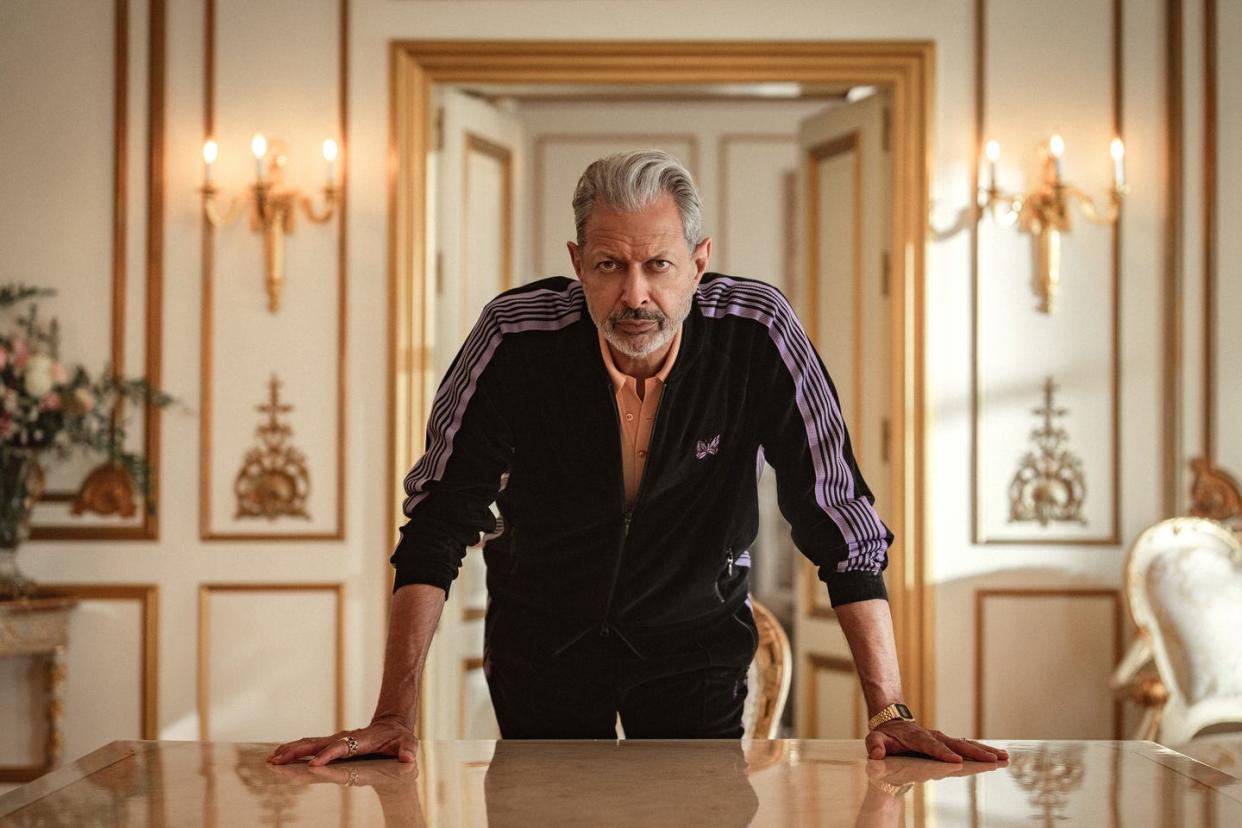Last year, one of my child’s English assignments was to rewrite a traditional fairy tale with one major plot difference, to see how the story might play out differently. New Netflix series Kaos feels like its creator, Charlie Covell, was given the same instruction for Greek mythology.
He decided to see what would happen if Zeus was a tasteless, egotistical, paranoid and overly controlling deity, whose best friend (and long-time prisoner), Prometheus, was secretly plotting his downfall.
The show’s blend of humour and drama effectively explores the consequences of such a scenario, while also providing a fresh take on classical mythology. Kaos is perhaps the cleverest retelling I have ever consumed (and not to brag, I have read a staggering number of Hades and Persephone retellings).
Within the first 30 seconds of episode one, Prometheus (Stephen Dillane), Kaos’s narrator, assures the audience that it doesn’t matter if they haven’t heard of him – and this directive rings true for the whole show. If you know nothing about Greek mythology, this should still be an enjoyable and thrilling romp of a story of gods and mortals vying for power and influence over the cosmos.
But if you do know something about Greek mythology, then you may want to set aside time for two separate viewings. One to enjoy the sensorial feast of intrigue, intra-family drama (divine and mortal), love and lust, mortals railing against the gods who control their world, and the gods and goddesses who meddle in their affairs – and another to appreciate the depth and nuance of the Easter eggs that are littered throughout the story and set.
The trailer for Kaos.
In the first ten minutes, we are introduced to Zeus, king of the gods (Jeff Goldblum), and a mortal called Riddy (Aurora Perrineau), aka Eurydice. One lives with his wife in a kitsch mansion in the sky; the other with her husband, rock star Orpheus (Killian Scott) and Dennis, the black kitten, in a fancy modernist villa in Herakleion, Crete.
Riddy feels an emptiness in her life and relationship, perhaps reinforced by her face’s presence on the posters and billboards of Orpheus’s latest album, Muse. But she is jolted out of her monotonous world through a chance encounter at the supermarket with a woman who prophesies she will leave him that very day.
Then enters Dionysus (Nabhaan Rizwan) – god of pleasure, madness, and wild frenzy – whose sense of emptiness in his party-boy lifestyle is evident. He is, like many wayward youngest children, searching for more. More meaning, more responsibility, more respect – particularly from his father, Zeus.
It’s against this background that Zeus – inviolable, perfect, heavenly Zeus – finds a wrinkle on his forehead and decides this is the beginning of the end, the first stage in the fulfilment of a prophecy that will lead to the destruction of the gods themselves.
In some ways he’s right, in others not, and by the end of the season, you get the distinct impression that this all played out in the exact way it was meant to, according to the Fates.
Beyond the rich and deep storytelling and character development, Kaos is also a delight to watch, with excellent set-dressing choices. Olympus is bright and vibrantly colourful, the mortal world deep and gritty, and the Underworld flat and black and white.
Goldblum is a brilliant Zeus, but the standout performances are the three mortal characters who push, pull, drag and cajole the story forward: Riddy, Ari (Leila Farzad) and Caneus (Misia Butler). It is the interplay between these performances – particularly of Perrineau and Butler – that makes this “dark comedy” distinctly human.
---Ellie Mackin Roberts, Research fellow, University of Bristol
This article is republished from The Conversation under a Creative Commons license. Read the original article.








